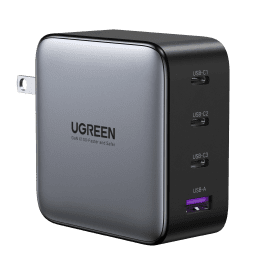
Shopware is an open-source eCommerce development platform that is made in Germany Shopware Development provides an enhanced customers’ experience to the users. The platform has more than 100,000 happy and satisfied clients. This makes it popular among the developers.
Why are people preferring Shopware development?
The Shopware company provides constant upgrades for this platform to make the user experience and platform effortless for usage. It also has a flexible API approach that can handle multiple eCommerce advances.
Shopware is a community-driven platform. The plugins and extensions are updated automatically. It also gives you the freedom to select a sales channel or multiple devices for your support. Also, it can be easily integrated with ERP and CRM. In this post, we will be sharing tips that will be beneficial when you are building an eCommerce website.
Tips for building your next eCommerce website with Shopware:
1. Filterable Attributes in Catalog Configuration
If you configure your catalog with filterable attributes, this will help customers to search for products easily. They can add various filters in your Shopware e-commerce store to get instant results.
2. Hire Shopware developers
If you want the Shopware development process to be quick and efficient, then you should hire Shopware developers. You can also reach out to a company that provides Shopware services. Before you make your final decision look at their previous work, client base, experience, charges, etc. Try to choose a Shopware development company that has great communication and works on your niche to deliver successful results.
3. Track your marketing campaigns
Monitoring the marketing campaigns is very important to know whether the campaigns are delivering the expected outcomes or not. You can use various tools available online such as Google Analytics to track the performance of your online marketing campaigns. Try to look for strong and weak links on your e-commerce platform. This will help you to get the scope of improvement and generate better revenue.
4. Setup Google Analytics
Once you have completed the Shopware development process, you need to know the behavior and interactions of visitors. This can be managed with the help of Google Analytics. It detailed insights about the traffic and sales of your e-commerce store. You can use Google Analytics for the following purposes:
- Tracking sales of your online store
- Tracking the traffic of the website
- Understanding the behavior of your target audience
- Tracking marketing campaigns
These insights will help you to focus on the growth of your e-commerce platform.
5. Choose a mobile responsive theme
The look of your eCommerce store depends upon its theme. The Shopware platform has a wide range of themes for your eCommerce store. You need to select the one that matches your business requirements and attracts more visitors. There are many users whose buying decision is affected by the looks and feel of the website. So, you must be cautious while choosing the theme of your store.
You should remember the following things while selecting the theme of your website:
- The theme should create a good experience for the users.
- The theme should be highly responsive and provide faster page loads.
- Should be interactive and engaging for the visitors
- Provides high customization for the developers
6. SEO Friendly
It is vital to make your online store SEO-friendly. Search engines prefer platforms that are SEO-friendly. This will increase your rankings on the SERPs, and it will bring more traffic to your website. In Shopware, landing pages have their own SEO features that help to make your content more optimized for the search engines and enhance its online presence.
7. Setting payment and shipping method
There are specific settings available in Shopware that will help you to edit, activate, or deactivate the payment and shipping methods. While running an e-commerce store you need to provide smooth payments and shipping processes to the visitors. This will help to gain potential customers for your store. You can look for various Shopware Plugin Development services to integrate the best plugins for payment and shipping processes.
8. Check your website performance for both desktop & mobile
The speed and performance of the website play a significant role. Even seconds of delay in page loading speed can result in big revenue loss. If your website or app consumes a lot of time to load, then you will have higher bounce rates which will affect your rankings on the search engines. . People are tending to buy from your store that has page loads within 5 seconds. This makes it vital to focus on your website performance on both desktop and mobile devices.
9. Use item badges
Using item badges is a great way to promote or highlight products in your catalog. The sellers get the option on the Shopware platform to add badges like ‘Sale’, ‘New’, ‘Exclusively’, etc. to get buyers’ interest. These types of badges capture customers’ attention and motivate them to buy the products. This leads to a boost in sales and generates better returns
Conclusion
We have discussed some of the best insights that will be helpful when you plan to build your next e-commerce store. You can also connect with the Shopware Development organizations to make your website development effective and fast. Monitor your website performance at regular intervals for better results.








